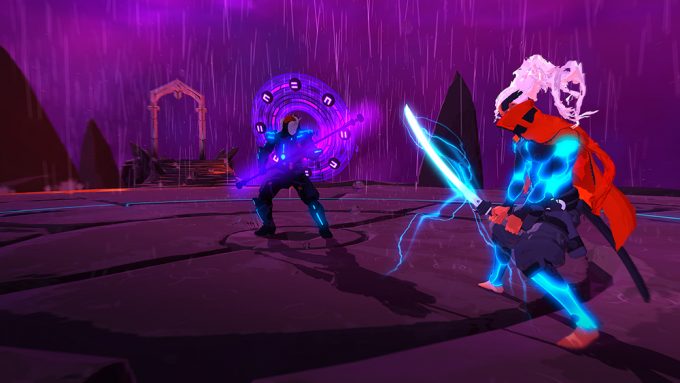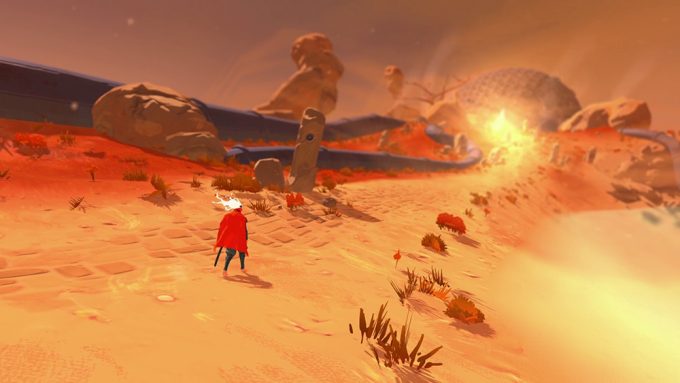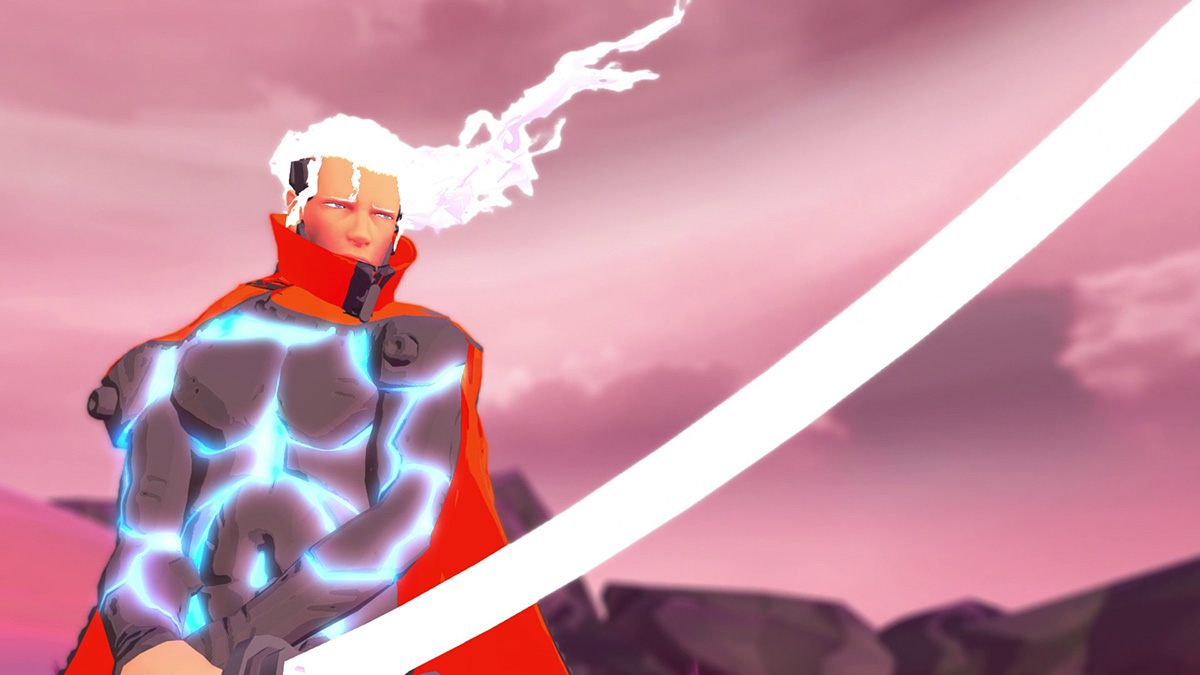I am now a better action gamer.
I used to approach action games pretty much all the same way: button mash as much as possible, and hope a combo pops out of the experience. I played the games mindlessly, like a 3 yr old slamming the palm of his hand onto the “Attack” button of [insert popular arcade game] and waiting for flashy lights and explodey sounds. I was a monster. SideQuesting’s own Ryan Gan would probably call me a brute.
I don’t think that’s the case any more, at least for the immediate future. I’ve begun to appreciate the intricacies of on-screen battles, to understand more about cause and effect and paper-rock-scissors, to anticipate and plan. I’m learning.
And I think I owe it to Furi.

Furi, the latest project from The Game Bakers, focuses on one-on-one boss battles at the core of its design. It’s not the first game to do this — and it won’t be the best, or most well known, or the last — but it’s certainly one that will stand out thanks to the way that it mixes its many varied elements together well. Here’s the best summary I could muster: Furi is an arcade twin-stick sword fighting bullet hell shooter based on a series of one-on-one boss fights in which a space samurai tries to escape from a neon prison in the future, as well as his own personal demons.
Whew.
That description should cover everything, but it still only scratches the surface. All of Furi‘s mechanisms are intertwined. Our silent, memory-lapsed protagonist finds himself in prison with no recognition of how he got there, and his only means of escape to battle past his captors one by one. Whether it’s a guard or a warden or a fiend, each battle reveals more and more of the reason for his imprisonment. As he progresses further a strange rabbit-like guide will help him uncover his nascent battling talents. With art by Afro Samurai‘s Takashi Okazaki and a soundtrack by artists like Carpenter Brut and The Toxic Avenger, the game spits out a torrential downpour of poster-polygonal style, emphasizing that this all takes place in some otherworldly locale. The environments are intoxicating, from floating asteroids to deserts to frozen tundras.
I love it. It reminds me of last gen’s hallucinogenically stylish El Shaddai, both from an action and visual direction.

Perhaps the poppy visual style is a distraction, as it hides beneath it one of the deepest battle systems I’ve ever come across. Furi has endless combos and it has infinite sword slashes and tons of special moves, but it centers on patience as its greatest battle technique. It’s not for the overly or even mildly aggressive, or even the defensive or passive. Furi wants you to be as timely and methodical as possible.
“Wait. Wait. Wait. Wait. Wait. ATTACK. Wait. Wait. Avoid. Wait.”
We wait for the right time, with the right positioning and the right attack, just to chip away at what often feels like the infinite health bar of an ever-increasingly powerful enemy. It’s a dance, and we need to know not just every step, but every moment, and to plan several moves ahead. And if one of those moves is off by even a fraction, the checkpoint-less battle is over and we restart from the beginning. It thereby moves at a purposefully slow pace, can be frustrating, and requires a level of dedication that most action games don’t have time to ask for.
That’s how the game brakes us and rebuilds us. That’s how it makes us better.
Behind the curtain of mental exhaustion is a surprising amount of satisfaction that occurs when we finally — FINALLY — defeat our latest adversary, not only because time took its toll on us but because we’ve perfected the violent, beautiful dance of projectiles and blades, at least for the most recent engagement. Much like Punch-Out!! taught is that boxing is about rhythm and timing, Furi teaches us that combat isn’t just “who can hit the hardest.” We become better fighters each step we take toward our eventual and hopeful escape.
What Furi pounds into us can then translate into any number of other games, teaching us to be more deliberate and disciplined. I’m not lying when I say that playing Black Ops III after a marathon of Furi battles seemed to improve my kill ratio. But it’s most definitely not for the faint of heart. Furi is undeniably gorgeous, frequently satisfying, and constantly frustrating, but it’s never discouraging. It may take a few tries, or a few hours, or a few days, but we eventually win the duel and move on. And we always feel better off for it.
This review of Furi was based on retail code for the PS4 provided by the publisher to SideQuesting.
Dali Dimovski plays action games often, and it’s his most-played genre, but he wouldn’t consider himself an expert. But he absolutely loves unique art direction and experiencing innovative gameplay mechanisms.


No Comments